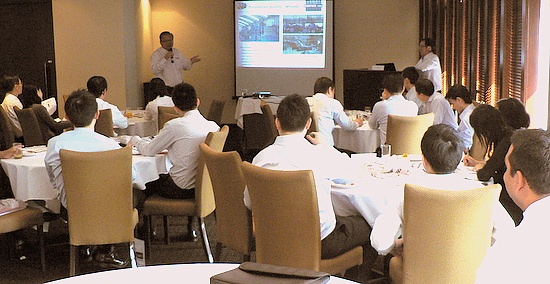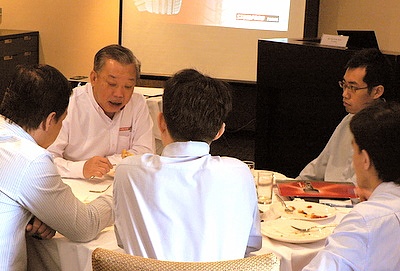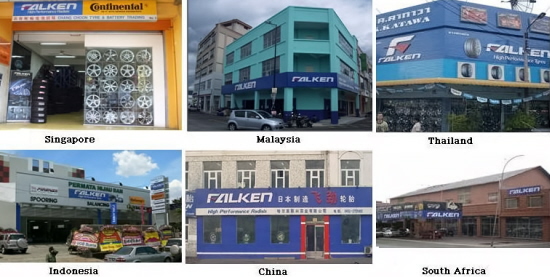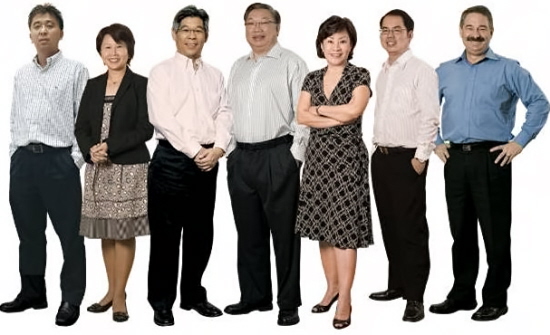
STAMFORD TYRES’ stock price surged 11.4% yesterday in a weak broader market after the company posted a nine-fold year-on-year jump in its FY2010 net profit to S$9.4 million, thanks partly to increased earnings from its China JV.
The stock last traded at 24.5 cents yesterday (Tue), up from 22 cents on Monday when its results were released after the market closed.
The stock's historical PE is 6.0X and trades at a sharp discount to its Net Asset Value of 42.39 cents a share.
The board of directors has recommended a 1-cent cash final dividend for the financial year ended 30 Apr 2010, translating into a 4% dividend yield based on yesterday’s close price.
|
FY2010 revenues were S$310.2 million, up 4.5%. Gross profit margins slipped 1.3 of a percentage point to 22.7%, mainly due to higher tyre purchase prices worldwide as well as a lower sales volume from the group’s wheel plant in Thailand. Group net margins were 3.0%.
Stamford Tyres is the largest independent tyre and wheel distributor in Southeast Asia, where 78% of its top line is generated.
China, or ‘North Asia’, posted the strongest growth of 31.8%. This region contributed 9.3% to top line, or S$28.7 million.
Stamford Tyres sells Dunlop tyres in China via its 20%-owned associated company, Sumitomo Rubber Industries Tyre Pacific, which is a joint venture with Sumitomo (60% stake) and Tan Chong (20%).

About 91% of Stamford Tyres' top line came from distribution.
It has distribution centres in Southeast Asia, China, India, South Africa and Australia, which supply to over 3,000 third-party retail outlets in over 30 countries worldwide.
Its product range includes major international tyre brands like Falken, Dunlop, Continental and Toyo Tires, as well as proprietary brands – Sumo Firenza tyres, Sumo Tire and SSW wheels, which are sold globally.
Besides being a distributor, the company is also a manufacturer - of aluminum alloy wheels via its Thai plant which has a production capacity of 1 m wheels a year.
On one aspect of its growth strategy, Mr Wee Kok Wah, the President, told an analyst briefing yesterday that the company would negotiate for higher allocation of tyres from major brands in all its distribution countries.

Below is a summary of the questions raised by investors at a breakfast meeting held yesterday, and replies by its president, Mr Wee Kok Wah.
Q: How do you see competition from online tyre distributors? We have not revalued the assets. We buy properties such as workshops, etc whenever there is a recession.
There are 2 types of online tyre businesses – the B2B and the B2C. The Singapore online model is a B2C one --- that is a cheap way to replicate Stamford’s brick-and-mortar model.
Our brick and mortar model works. We buy properties during bad times.
I believe the online model works for the B2B wholesale business, provided it has a common currency, etc. For example, in Europe, it is euro, and in US, it is USD. However in Singapore, we have different currencies, different sales taxes and different duties.
We are not ruling out the online model, as we have a very strong team for management of information systems. Anytime we can jump in, but we would like to let other players popularize the online model and jump in later.

Q: Your market cap is about S$50 million (as of Monday), and a conservative estimate of your (real estate) assets is about S$69 million. Are you considering revaluing your assets, and sell them to a REIT, lock in your rental and focus on distribution business?
Not really.
Q Your properties have not been revalued to market value. What would be their market value? You bought them years ago?
Q: How do the record rubber prices affect your business?
Rubber went up to US$3,300 per ton during the last quarter. The impact is on the Chinese suppliers because their margins are very tight, and dependent on government rebates.
Every time there is a fluctuation in raw material prices it is immediately reflected in their prices, so you have to immediately raise prices. This is unlike for international brands like Falken or Continental. The international brands command a premium because of quality and branding.
We had to change our model with the Chinese - we offtake from 7 factories in China. We used to consolidate in each of the factories. We now bring it all to Singapore, consolidate here. We can do more value-adding for the customer as well as for the factory. The factories know we are the principal buyer - and if they raise prices unreasonably, we can stop buying because we have inventory, which will disrupt their production. It's a two-way relationship, it's how you balance it.
For more details on Stamford Tyres' FY10 results, please read its press release on the Singapore Exchange website here.







